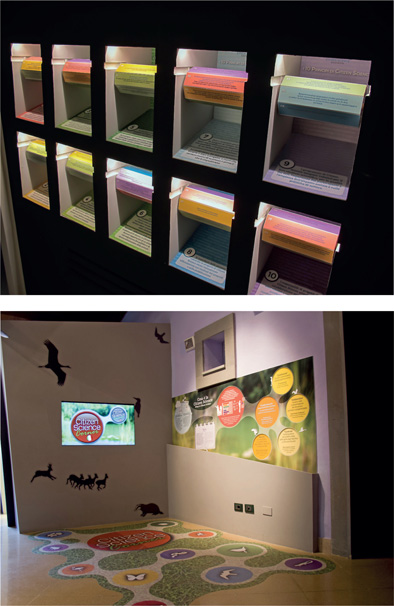Sharing
Using the Share tool allows you to share a link to the chapter of a book via your favourite social media tools. Facebook, Twitter and LinkedIn are shown by default, but click on the “…” icon to see more options.
Bookmarking
UCL Digital Monographs allow you to create bookmarks anywhere you like on a page and then use the main navigation dropdown panel to access them.
To create a bookmark, click on the tool (you’ll see it change colour to red) and then click anywhere in the book text to locate your bookmark. By default the bookmark will have a label which is the first few words of the text you clicked on. To edit this, just type your new text into the label and click on the icon. To delete a bookmark, click on the icon.
While you’re in Bookmark mode (with the icon on the right-hand tool panel shown in red) you can make new bookmarks. To turn Bookmarking mode off just click on the icon again.
By default bookmarks themselves are shown with their labels. To hide the labels or show them again, simply click on the bookmark itself.
To navigate to a bookmark you’ve made, go to the navigation icon you’d use to select a book or a chapter and you’ll see a new option to navigate to bookmarks.
Notes
To create a note within a page click on the Note tool to bring up a notepad. Now click on the icon to create a new note in your notepad. Click on the icon at any point to save your note or the to delete it.
You’ll notice a icon in each note. This allows you to highlight text from the page and associate it with a note. To do this, create a note, then swipe across any text in the page you want to associate with a note and then click on the icon. This text will now have a yellow highlighted colour and be associated with that note. Clicking on the icon again un-highlights the text you chose. You can only have one text selection highlighted per note. Deleting a note also un-highlights any associated text.
Export & Citation
The Export tool allows you to email any notes and highlighted text you have created either from within a page or the entire book. It also allows you to export the book metadata for use in citation.
Questions?
If have questions about UCL Digital Publications, you can contact us.

